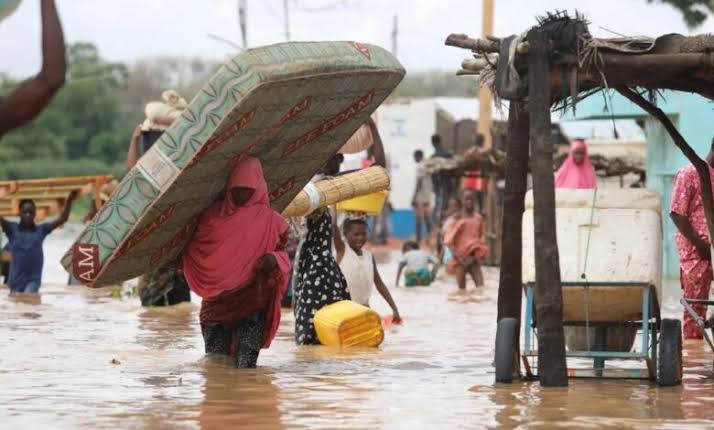Food distribution has become a critical issue, as many families are left without access to basic necessities. The Nigerian Red Cross and other NGOs have been working tirelessly to deliver food aid, but logistical challenges and security concerns in the region have hampered efforts. Many displaced families report receiving insufficient rations, leading to fears of malnutrition, especially among children. Health services are also under strain, with the risk of waterborne diseases rising in the aftermath of the floods. Clinics that were already operating at capacity are now facing an influx of patients suffering from diarrhea and other illnesses related to poor sanitation. Health officials are urging the government and international partners to prioritize medical assistance in the response efforts. Education has taken a backseat as schools remain closed due to the flooding. Children who were already out of school due to the ongoing conflict are now facing an extended period of educational disruption. Community leaders are advocating for the establishment of temporary learning spaces to ensure that children can continue their education amidst the chaos.
The response from the government has been met with mixed reviews. While some officials have been proactive in addressing the needs of displaced families, others have been criticized for their slow response and lack of coordination. Local leaders are calling for a more unified approach to disaster management that includes input from affected communities. International aid has begun to trickle in, with several countries and organizations pledging support for the flood victims. However, the response has been criticized for being reactive rather than proactive. Many advocates argue that a more robust disaster preparedness plan is essential to mitigate the impact of future floods and other natural disasters.
Community resilience is being tested as families come together to support one another in these trying times. Local organizations have stepped up to provide assistance, with volunteers distributing food and supplies to those in need. This grassroots response highlights the strength and solidarity of the Maiduguri community in the face of adversity. As the situation evolves, it is crucial to assess the long-term needs of displaced families. While immediate relief is essential, sustainable solutions must be prioritized to help families rebuild their lives. This includes providing access to housing, education, and livelihood opportunities to ensure that families can recover from the dual crises of conflict and flooding. The role of women in the response efforts cannot be overlooked. Many women have taken on leadership roles in their communities, organizing relief efforts and advocating for the needs of their families. Their resilience and resourcefulness are vital in navigating the challenges posed by the floods and ongoing insecurity. Looking ahead, it is imperative for the government and humanitarian organizations to collaborate closely with local communities. Engaging affected populations in the planning and implementation of response efforts will ensure that their needs are met effectively. This participatory approach can foster a sense of ownership and empowerment among displaced families.
As Maiduguri continues to recover from the floods, the lessons learned from this disaster must inform future disaster management strategies. Investing in infrastructure, early warning systems, and community preparedness can help mitigate the impact of future floods and protect vulnerable populations. The response to the displaced families in Maiduguri following the recent floods highlights both the challenges and opportunities in humanitarian assistance. While immediate relief efforts are crucial, a comprehensive and inclusive approach is needed to address the underlying vulnerabilities that have been exacerbated by this disaster. The resilience of the Maiduguri community, coupled with a coordinated response from government and humanitarian actors, will be key to rebuilding lives and restoring hope in the wake of the flood.
BINTU UMARU IBRAHIM
DEPARTMENT OF MASS COMMUNICATION
BORNO STATE UNIVERSITY
300 LEVEL










